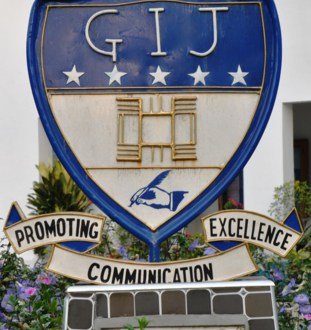Professor Dimitrova dished out publication advise to GIJ faculty in a lively interaction Wednesday on the topic “All you ever wanted to know about research publications”. The online forum which was organized by the Office of Research at the Ghana Institute of Journalism with support from the school’s management.
The goal of the forum was to provide an open forum for faculty to learn about the nitty gritty of scholarly publications as the institution seeks to become a hub for cutting edge research in the area of media and communication studies.
Professor Dimitrova is the current editor of one of the most highly rated, high regarded and arguably the most prestigious journal in journalism and mass communication, the Journalism and Mass Communication Quarterly (JMCQ). JMCQ is the oldest mass communication journal in the world. She is also a full professor at Iowa State University in the United States.
Professor Dimitrova advised faculty to familiarise themselves with journals they intend to send their manuscripts, start with lower tier but quality journals and produce rigorous work that will not immediately be desk-rejected. She nodded to the low acceptance rate of articles from Africa. Professor Dimitrova encouraged African scholars to stretch their studies beyond country specific or narrow focused studies. One way to make manuscripts compelling, she stated, was to expand research inquiries by making broader connections while adding context. This, she said, will make such publications more appealing.
“I will advise people to focus on the contribution in terms of theory… in terms of methods. One of the common mistakes non-US scholars make is emphasizing the country of study rather than the contribution to theory or methods” she said.
She added that aspiring scholars should familiarize themselves with the nature of articles in particular journals to improve their chances of getting published.
“Get used to reading the type of research articles…looking at the style to start seeing what has been published. Don’t hesitate to contact the editor if you would like a clarification…” she stressed.
Participants asked questions after the presentation. Questions were mostly related to how to craft efficient research topics, how to engage in research collaborations, how identify the right journal for publication and standards expected.
Professor Dimitrova also used the opportunity to introduce faculty to JMCQ and took them through publication guidelines. Some faculty who took part said the event was timely and highly beneficial. Dr Benedine Azanu, a member of the journalism faculty at GIJ, expressed her delight and appreciation.
“The presentation was insightful and a wonderful learning experience. There was enough revealing information that is beneficial to early career academics.”




